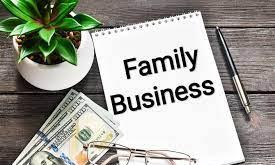
Concerns on the rise over loss of heirs in family companies: report
text_fieldsNew Delhi: Family companies, often the unseen powerhouses of the global economy, comprise over 90% of all businesses worldwide.
Renowned entities such as LVMH Moet Hennessy Louis Vuitton SE in France and Samsung Electronics Co. in South Korea fall into this category.
According to Bloomberg, one-third of companies in the Standard & Poor’s 500 index and 40% of the largest companies in France and Germany have a significant family influence.
However, despite their prevalence, many family firms now confront a critical challenge to their continued existence – a shortage of heirs.
This predicament, fueled by demographic shifts and evolving societal norms, poses a serious threat to the survival of these enterprises.
While some may applaud the end of dynastic succession dramas, it overlooks the vital role of exemplary family firms not only as drivers of progress and innovation but also as custodians of public trust. This becomes particularly crucial at a time when confidence in capitalism is at an all-time low, says the Bloomberg report.
Even when family companies attain colossal proportions akin to Succession’s Waystar RoyCo, they inherently remain delicate organisations. This fragility is attributed, in part, to susceptibility to internal family conflicts and the intricate challenge of grooming a capable heir. Unlike non-family enterprises, family-run businesses face limitations in selecting successors, constrained by familial DNA.
The remaining heirs, often disinclined to follow in their forefathers' footsteps, tend to pursue education at prestigious universities and business schools, establishing roots in major urban centres.
Those less academically inclined who remain at home may be willing to assume leadership but frequently lack the competence for the role. Additionally, demographic factors compound the heir shortage dilemma. Family heads now enjoy longer lifespans and are often reluctant to relinquish control until their seventies or beyond.























